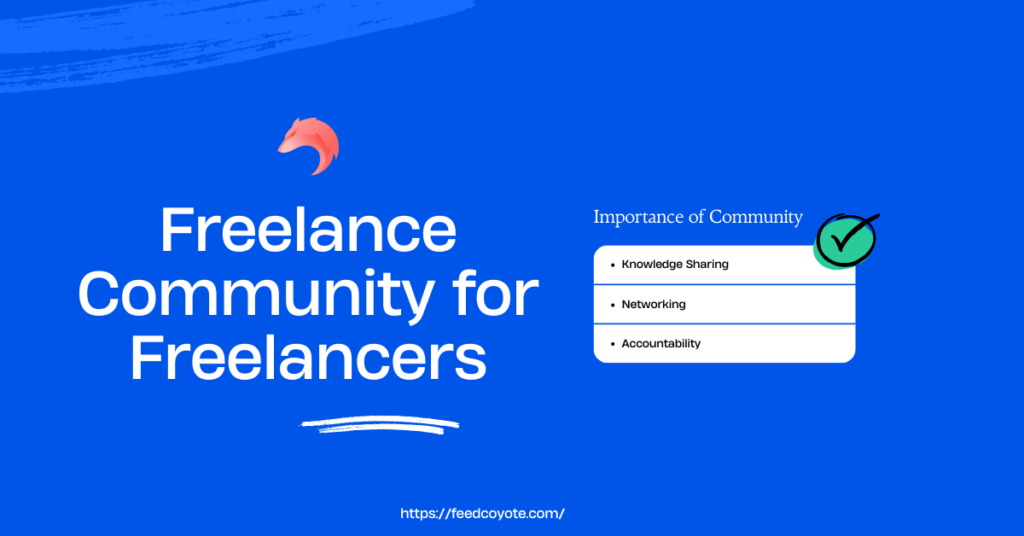Listen to Summary –
Imagine turning your passion for travel into a thriving business. In an interconnected world, starting a travel agency in 2024 could be your ticket to professional freedom and adventure. Before the internet era, travel agencies were the gatekeepers to exotic destinations and seamless travel experiences, essential for navigating the complexities of trip planning.
Embark on a voyage through the essentials of establishing a successful travel business. Delve into strategies for identifying your audience, harnessing the power of marketing, diversifying your service offerings, and adapting to industry currents. With insight into overcoming hurdles and securing client loyalty, this ultimate guide is the compass you need to chart a course for business success in the ever-evolving travel industry.
What is a travel agency?
A travel agency is a business specializing in the planning and booking of travel-related services for individuals and groups. These services typically include but are not limited to, reservations for flights, hotels, rental cars, cruises, and travel package deals. Working with various providers, travel agencies act as intermediaries that help travelers streamline the process of travel planning, making it more efficient and often more affordable.
Importance of travel agencies in the travel industry
Travel agencies play a pivotal role in the travel industry. They serve as a valuable conduit between suppliers of travel services (such as airlines, hotels, and tour operators) and the travelling public. By doing so, travel agencies contribute to the industry by:
- Making travel more accessible: Travel agencies simplify the planning process for their clients, helping them navigate the often complex options available.
- Offering expert knowledge: Many travelers depend on the expertise of travel professionals to find the best deals and to cater to their specific travel needs.
- Providing personalized services: Travel agents can offer customized travel experiences based on clients’ preferences and budget, something not easily replicated by online travel agencies.
With the rise of technology and online platforms, travel agencies have also adapted by using social media platforms and email marketing for reaching potential clients and maintaining relationships with existing customers. Their contribution is significant in creating a successful and seamless travel experience for those looking to explore the world.
Starting a Travel Agency
Starting a successful travel agency requires a meticulous plan and a profound passion for travel. Before embarking on this adventure, you’ll need to determine your business model, target market, and services offered. Home-based travel agents and independent travel agents have surged in popularity, reducing the need for a physical office and allowing for a broad reach through online platforms. To ensure a solid foundation, draft a comprehensive business plan that outlines your vision, startup costs, marketing strategies, and long-term goals. Here are pivotal steps to consider when launching your travel business.
Choosing a Niche Market
In the competitive travel industry, identifying a niche market is crucial for setting your business apart. Whether you’re passionate about luxury travel, adventure travel, or specialize in certain destinations, honing in on a specific segment can help you cater to a targeted audience more effectively. Consider factors such as:
- Personal Interests: Align your passion for travel with your business.
- Market Demand: Research to see what unique travel experiences are in demand.
- Expertise: Leverage any special knowledge or experience you have in a particular area of travel.
Focus on developing expertise within your chosen niche to become a go-to travel professional for that segment. This specialization will make your marketing strategies more impactful by zeroing in on the right target audience.
Determining the Legal Structure and Requirements
Selecting the appropriate legal structure is one of the first legal requirements when starting your travel agency. Options include operating as a sole proprietorship, partnership, or forming a corporation or limited liability company (LLC). Each structure has different implications for liability, taxes, and ongoing legal obligations. Additionally, you’ll need to:
- Obtain Licenses: Secure the required local and state business licenses to operate legally.
- Travel Seller Registration: Register as a travel seller/agent wherever necessary.
- Protection Measures: Explore professional liability insurance to protect against errors and omissions.
Adhering to all legal requirements from the outset will provide peace of mind as your business grows.
Start-up Costs and Financial Planning
Having a clear financial plan is essential for launching a successful travel agency. The startup costs can vary greatly depending on factors such as whether you are working from home, renting an office space, or investing in an existing franchise. Typical costs might include:
- Business Licensing and Registration: Fees for proper legal setup.
- Marketing: Investment in branding, website development, social media, and email marketing.
- Technology: Reservation systems, customer management software, and other tools that can streamline operations.
- Insurance: Protecting your business against potential legal actions.
Prepare a financial forecast, including projected income, expenses, and break-even analysis, to guide your business decisions.
Finding the Right Location for Your Travel Agency
If you decide to operate a physical travel agency, location is a crucial factor. A well-chosen office should:
- Be Accessible: Ensure it’s convenient for your target market to visit your agency.
- Offer Visibility: High-traffic areas can increase brand visibility and walk-in clients.
- Stay Budget-Friendly: Balance location benefits with rental costs to prevent over-extending financially.
However, many successful travel agencies operate primarily online, significantly reducing the need for a storefront. In such cases, emphasis should be on the user experience of online platforms and leveraging social media to create a compelling online presence.
By carefully examining these aspects of starting a travel agency, your dedication to creating memorable travel experiences can translate into a successful business.
Target Market and Audience
Every successful travel agency understands that at the core of its achievements is a well-defined target market and audience. Identifying specific groups to which you’ll be selling travel services not only refines your marketing strategies, but also enhances service customization and client satisfaction. When considering your target market, reflect on demographics such as age, income, travel preferences, and lifestyle. For instance, some travel companies may focus on luxury travel for high-income individuals, while others may cater to adventure travel enthusiasts seeking thrilling experiences.
Identifying the target market for your travel agency
Identifying the target market for your travel agency starts with recognizing who your potential clients are and what unique travel needs or desires they possess. Here’s how to begin pinpointing your ideal customer base:
- Demographics: Consider details such as age, income levels, education, and occupation.
- Psychographics: Examine lifestyle, values, and interests that may influence travel choices.
- Travel Habits: Look at past travel behaviors, preferred destinations, and types of vacations.
- Geographic Location: Determine whether your services will cater to local, national, or international clients.
Gathering this information can inform many aspects of your business, from the travel packages you create to the marketing channels you utilize.
Understanding the needs and preferences of potential clients
To provide exceptional travel experiences, you must understand the ever-evolving needs and preferences of potential clients. Solicit feedback through surveys, social media interactions, and client interviews to get a sense of what your customers are looking for. Here are some key aspects to consider:
- Personalized Services: Clients often appreciate a travel experience that feels tailored to their interests and needs.
- Convenience: Ease of booking, flexible payment options, and prompt customer service are high priorities.
- Value for Money: Offer packages that give clients the best experience for their budget.
By thoroughly understanding your client’s wishes, you can tune your services to exceed their expectations.
Segmenting the target audience for effective marketing strategies
To refine your marketing strategies, it may be beneficial to segment your target audience into smaller, more manageable groups. This allows for personalized marketing efforts that are more likely to resonate with potential customers and can be achieved through:
- Behavioral Segmentation: Grouping clients based on purchasing behavior and usage.
- Demographic Segmentation: Categorizing based on age, gender, income, etc.
- Geographic Segmentation: Tailoring marketing based on location.
- Psychographic Segmentation: Dividing the market by social class, lifestyle, or personality traits.
Consider incorporating tables and lists into your marketing plans to visually organize different segments and the tailored strategies for each.
| Segment | Marketing Approach | Platforms Utilized |
| Luxury Travelers | High-end imagery, exclusivity | Social media, Magazines |
| Adventure Enthusiasts | Compelling stories, testimonials | Blogs, YouTube |
| Family Holidays | Discounts, family package deals | Social media, Email marketing |
By thoroughly understanding and segmenting your target audience, you can execute sharply focused marketing strategies that draw in and retain an enthusiastic clientele eager to explore the world with your travel agency’s expertise.
Marketing and Advertising
In the competitive realm of travel businesses, effective marketing and advertising are pivotal for attracting and retaining clients. Successful travel agencies leverage a mix of contemporary online strategies and traditional marketing techniques tailored to their target audience. Developing a calculated marketing plan is essential, utilizing a wide range of online platforms to engage potential clients, and creating resonant marketing materials and campaigns. Additionally, active participation in travel industry events and networking opportunities can substantially elevate brand visibility and forge valuable partnerships. Through these methods, travel professionals can systematically reach their chosen market segments and showcase their unique offerings.
Developing a marketing plan for your travel agency
Crafting a robust marketing plan necessitates a strategic approach, encompassing an array of activities designed to reach your target market successfully. Start by setting clear objectives, outlining your budget, and identifying key performance indicators (KPIs). A detailed marketing plan will typically include:
- Market Research: Gain insights into industry trends and competitor strategies.
- Defining USP: Establish what sets your travel services apart.
- Marketing Mix: Determine the optimal blend of product, price, place, and promotion.
- Campaign Planning: Set timelines and milestones for promotional activities.
A table can help visualize the plan:
| Objectives | Strategies | Tactics | Metrics |
| Increase Bookings | Targeted Ads | Social Media Advertising | Conversion Rate |
| Enhance Visibility | Content Marketing | SEO-Optimized Blog Posts | Website Traffic |
| Build Client Loyalty | Email Marketing | Monthly Newsletters | Repeat Business |
Utilizing online advertising and social media platforms
In today’s digital age, a strong online presence can significantly enhance a travel agency’s reach and reputation. Utilizing online advertising tools like Google Ads can strategically place your services in front of individuals actively searching for travel options. Meanwhile, social media platforms offer a direct line to engage with your target market dynamically. Essential tips include:
- Targeted Advertising: Use platform-specific tools to reach your ideal demographic.
- Content Creation: Share travel tips, destination highlights, and client testimonials.
- Interactive Engagement: Host Q&As, polls, and competitions to foster community.
Platforms such as Facebook, Instagram, Twitter, and Pinterest have diverse audiences and features apt for various marketing strategies.
Creating marketing materials and promotional campaigns
Effective marketing materials and campaigns convey the excitement of travel while informing potential clients about your services. For promotional material:
- Design Visually Appealing Assets: Flyers, brochures, and digital banners.
- Propose Time-Sensitive Promotions: Early-bird specials, last-minute deals.
- Craft Compelling Narratives: Storytelling that encapsulates the joy of travel.
Campaigns should be multifaceted, combining direct mail, email marketing campaigns, as well as online and physical advertising to maximize reach.
Participating in industry events and networking opportunities
Networking is a cornerstone of building a successful travel business. Industry events, such as trade shows, seminars, and conferences, offer the chance to:
- Connect with fellow professionals.
- Learn from industry leaders.
- Showcase your services directly to interested parties.
Ensure to collect contacts and follow up post-events. Creating a list of upcoming events and planning your participation can position your agency as a proactive and dedicated travel professional in the market.
Travel Products and Services
When starting a travel business, offering comprehensive travel products and services is crucial for addressing the diverse needs of travelers. Providing customers with a variety of travel options not only caters to different preferences and requirements but also increases the chance of repeat business and referrals. As a business owner, you’ll want to ensure that your portfolio includes everything from basic travel arrangements like flights, hotels, and car rentals, to more complex offerings such as customized itineraries, travel insurance, and guided tours. Remember to stay informed about the latest trends in travel services to keep your business competitive and appealing to your target audience.
Different Types of Travel Products Offered by Travel Agencies
Travel agencies typically offer a spectrum of products to cater to various travel styles and preferences. Here are several key travel products that could be part of your offering:
| Travel Products | Description |
| Flight Bookings | Reserving air travel for clients to various destinations. |
| Accommodation Reservations | Arranging stays at hotels, resorts, bed and breakfasts, or vacation rentals. |
| Car Rentals | Facilitating the hire of vehicles for client convenience at their destination. |
| Cruise Packages | Offering sea travel that may include entertainment and food onboard. |
| Tour Packages | Curating themed travel experiences, such as culture, adventure, or relaxation. |
| Travel Insurance | Providing protection to travelers against trip cancellations and medical issues. |
| Visa and Passport Services | Assisting with the documentation required for international travel. |
In addition to these, you may offer niche travel experiences like eco-tourism, food and wine tours, or wellness retreats.
Importance of Offering a Wide Range of Services to Cater to Client Needs
By offering a wide range of travel services, your agency can become a one-stop-shop for your clients’ travel needs. This approach not only simplifies the planning process for travelers but also establishes trust and credibility for your agency. Clients are more likely to return to and recommend a travel agency that has demonstrated the ability to cater to their complete set of travel requirements, from transportation and lodging to experiences and support services. Moreover, it allows your agency to appeal to a broad target market, including families, solo travelers, business travelers, and luxury seekers. Tailoring your services to the unique desires of these distinct groups ensures that no potential client’s needs are left unaddressed.
Unique Selling Propositions for Your Travel Agency
Your travel agency’s unique selling propositions (USPs) should highlight what makes your business stand out among competitors. These characteristics can stem from a special niche you serve, exclusive access to certain destinations, superior customer service, or competitive pricing. Here are a few examples of USPs that could distinguish your agency:
- Expertise in a niche market (e.g., adventure travel, luxury travel, destination weddings)
- Personalized trip planning and concierge services
- Access to exclusive experiences and accommodations
- Specialized knowledge of hidden gems and off-the-beat-path destinations
- Strong partnerships with preferred suppliers to offer competitive rates
Incorporating these unique aspects into your business plans and marketing strategies will differentiate your travel agency and help attract your ideal target audience. Keep your paragraphs short and focused on these selling points to effectively communicate the benefits of choosing your travel services.
Remember, your USPs should resonate with the passion for travel you aim to instill in your clients, and be clearly communicated across all your marketing materials and campaigns.
Building a Successful Travel Agency
Embarking on the journey of creating a successful travel agency requires a blend of passion for travel, business acumen, and strategic planning. It’s not just about selling travel packages; it’s about crafting memorable experiences for travelers and building a reputation as a dependable travel professional. Crafting a clear and actionable business plan, understanding legal requirements, and choosing the right host agency, if you’re a home-based travel agent, lay the foundation for success. Additionally, distinguishing your agency through unique offerings and adopting savvy marketing strategies to attract potential clients are vital steps to forge ahead in the competitive travel industry.
Key Factors for Success in the Travel Agency Business
Success in the travel agency business is hinged upon several critical factors:
- Defining Your Niche Market: Identify and cater to a niche market such as adventure travel, luxury travel, or special interest tours, to provide specialized services.
- Understanding Your Target Audience: Knowing your target market enables you to tailor marketing efforts and service offerings more effectively.
- Competitive Pricing: By negotiating with suppliers and managing startup costs, you can offer value to your customers while maintaining profitability.
- Marketing Savvy: Utilizing a mix of online platforms, social media platforms, and email marketing helps reach a broader audience and engage potential clients.
- Strong Supplier Relationships: Building good relationships with suppliers can result in better rates and desirable perks for your clients.
- Legal Compliance: Ensuring that all legal requirements are met for operating a travel agency business protects you and your clients.
Adapting to these key aspects can set the trajectory for establishing a successful travel agency.
Providing Exceptional Customer Service and Personalized Travel Experiences
Exceptional customer service is non-negotiable in the travel business. Striving to understand and anticipate your clients’ needs can lead to the design of highly personalized travel experiences. Here are several ways you can excel in customer service:
- Be Responsive: Quick and efficient responses to inquiries and issues gain clients’ trust.
- Tailor Suggestions: Personalized recommendations based on clients’ preferences distinguish your service.
- After-sales Support: Offering support during and after the trip reinforces reliability.
- Loyalty Rewards: Implementing loyalty programs acknowledges and rewards repeat clients.
Building a strong rapport and exceeding expectations will not only satisfy clients but also lead to positive word-of-mouth referrals.
Building a Strong Client Base and Repeat Business
Sustainable growth in the travel agency business is largely dependent on a strong client base. Here are strategies to cultivate and retain clients:
- Stellar First Impressions: Ensuring excellent first-time experiences encourages repeat bookings.
- Follow-Up Communication: Checking in post-travel shows care and invites feedback.
- Networking: Attending industry events can expand your professional network and lead to referrals.
- Referral Programs: Encouraging satisfied clients to refer new customers can grow your client base organically.
Nurture long-term relationships with clients, and your travel agency will likely see a consistent stream of repeat business and referrals.
Keeping up with Travel Trends and Industry Changes
The travel industry is dynamic, and success involves staying abreast of the latest trends and industry changes:
- Continuous Learning: Attend travel industry conferences and seminars to stay educated.
- Adapt to Technology: Embrace new technologies that simplify travel planning and enhance customer experience.
- Monitor Market Shifts: Being aware of shifting travel patterns can help you quickly adapt your offerings.
- Sustainable Practices: As the industry moves towards sustainability, ensure your business aligns with eco-friendly travel options.
To maintain a competitive edge, it’s imperative to keep adapting and evolving your travel business in line with the latest industry standards and customer preferences.
Challenges and Risks
Embarking on a journey in the travel business undoubtedly comes with its own set of challenges and risks. Current market trends and customer expectations can change rapidly, meaning that travel agencies need to stay agile and adaptive. Economic fluctuations can also pose significant risks, potentially impacting travel frequency and client spending habits. Furthermore, as the industry relies on external factors such as political stability and health-related concerns, travel advisories or unforeseen events like pandemics can severely disrupt business operations. Another substantial challenge lies in the intense competition not only from other traditional and online travel agencies but also from the growing number of travel services offered directly by suppliers.
In terms of risk, the reliance on technology, while indispensable for efficiency and reach, can lead to vulnerabilities including data breaches or system failures. Legal risks also abound, with travel companies needing to comply with varying regulations both locally and internationally. Additionally, miscommunication or misunderstanding of travel plans can lead to client dissatisfaction, damaging the reputation of the agency which can be costly to rebuild.
Addressing challenges faced by travel agencies
To address these challenges, travel agencies must develop robust contingency plans and adopt a proactive stance toward market research and trend analysis. A successful travel agency stays up-to-date on global events that could impact travel and adjusts its services accordingly to mitigate downturns. Investing in high-quality customer service training can help staff better manage and meet client expectations, turning potentially negative experiences into positive ones.
Travel agencies can also set themselves apart by capitalizing on unique travel experiences and maintaining a powerful online presence. Building a strong digital marketing strategy harnesses the potential of various online and social media platforms to maximize visibility and attract a wider audience. Creating exclusive partnerships with suppliers can help offer unique deals that competitors might not have. Engaging with customer feedback platforms is also crucial to address concerns and improve service quality continually.
Mitigating risks and liability in the travel agency business
Mitigating risks and liabilities involves several strategies. Firstly, establishing a limited liability company (LLC) can provide personal asset protection and limit financial exposure. To further insulate against liability, acquiring comprehensive insurance tailored to the travel industry is essential. This can include professional liability insurance, general liability insurance, and errors and omissions (E&O) insurance.
Moreover, implementing robust data security measures and having stringent privacy policies in place can help protect client information and reduce the risk of cyber threats. Having clear terms and conditions, disclaimers, and well-drafted contracts can minimize legal risks. Employee training should include awareness and adherence to these legal considerations.
Attentiveness toward enhancing the security of payment processes and maintaining accurate and detailed records of transactions and client communications also plays an integral role in reducing risk. Regularly reviewing and updating business plans to align with the latest legal requirements and industry best practices ensures a travel agency is not only compliant but also competitive.
In summary, by identifying the inherent risks and challenges and taking preemptive action to address them, travel agencies can fortify their business against potential adversities, thereby setting the stage for sustained growth and a blossoming reputation.
Get Started with Feedcoyote
Running a successful travel agency demands commitment and quality service, from setup through your first sale and beyond. It’s easier with smart, experienced partners by your side.
Whether you’re just starting out or your travel agency is ready to launch, remember to delegate. Feedcoyote offers a wide selection of top-rated independent professionals you can hire to help with almost any aspect of your small business. Our pool of web designers, for example, can assist you in offering visually appealing destinations and a user-friendly online interface, putting you ahead of the competition. Explore Feedcoyote’s outstanding talent pool today.





